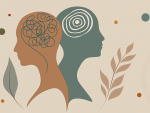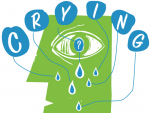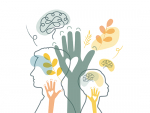Displaying items by tag: department of psychiatry and behavioral neurobiology
Rachel Smith, Ph.D., is collaborating with researchers across UAB on the two-year project, which will focus on the intracranial neural networks responsible for major depressive symptoms in epilepsy patients.
Tagged under
The purchase and consumption of alcohol and substances often increases during the holiday season, and while some may drink to celebrate, others may drink to suppress their feelings.
Tagged under
Beacon ACT Clinic, which stands for Access, Connection, Transition, served more than 300 patients during its first year in operation.
Expert at UAB sheds light on the mental health phenomenon that casts a shadow over the colder months.
Eating foods that contain sugar in regulated amounts may not be exceedingly harmful, but overconsumption of sugar can lead to a significant impact on brain function and overall mood.
Tagged under
The Suicide Prevention and Recovery in Healthcare initiative is a pioneering program that empowers individuals to navigate through their darkest moments toward a path of healing and resilience.
For their continued research in sleep disorders in individuals with Down syndrome, UAB’s Caroline G. Richter, Ph.D. and S. Justin Thomas, Ph.D. were named the recipients of the 2024-2025 McNulty Civitan Scientist Award.
Tagged under
A recent study by UAB researchers showed that teenagers with higher levels of adiposity have more cognitive impact from poor sleep compared to teenagers with a healthy weight.
Fobian developed Retraining and Control Therapy, or ReACT, to help patients with functional neurological disorder, or FND, which affects an estimated 300,000 Americans.
Tagged under
Crying happens when emotions, sensory thresholds and societal norms interplay. According to experts, an occasional cry is completely healthy and expected.
Tagged under
Experts at UAB dive into the benefits of indoor and outdoor gardening and give their advice on how to get started.
Tagged under
APPs are generally physician assistants or nurse practitioners, and in the Department of Psychiatry and Behavioral Neurobiology, they account for more than 1,000 arrived patient appointments each year.
Tagged under
This serious mental health problem resists treatment, but a mouse model shows a potential new treatment.
The Social Work Partnership will bring together academicians, students, and social workers currently working in the field to inform best educational practices aligned with the field requirements.
Tagged under
This holiday season, one UAB expert suggests looking for ways to invest in time with elderly loved ones versus investing in gifts.
Some individuals may experience a range of somatic or physical symptoms, such as persistent tension or nervousness, as the weekend comes to an end, also known as the “Monday blues” or “Sunday scaries.”
Researchers used a mouse model and cutting-edge neurobiological techniques to show how psychological stress during adolescence alters neuronal functions in the brain, resulting in altered postpartum social behavior.
A night or two of poor sleep can be normal. But if the problem persists, it may be time to seek professional advice.
Tagged under



















